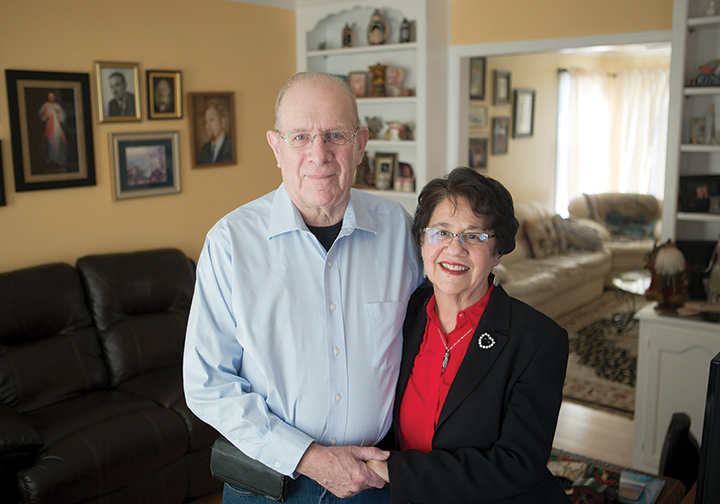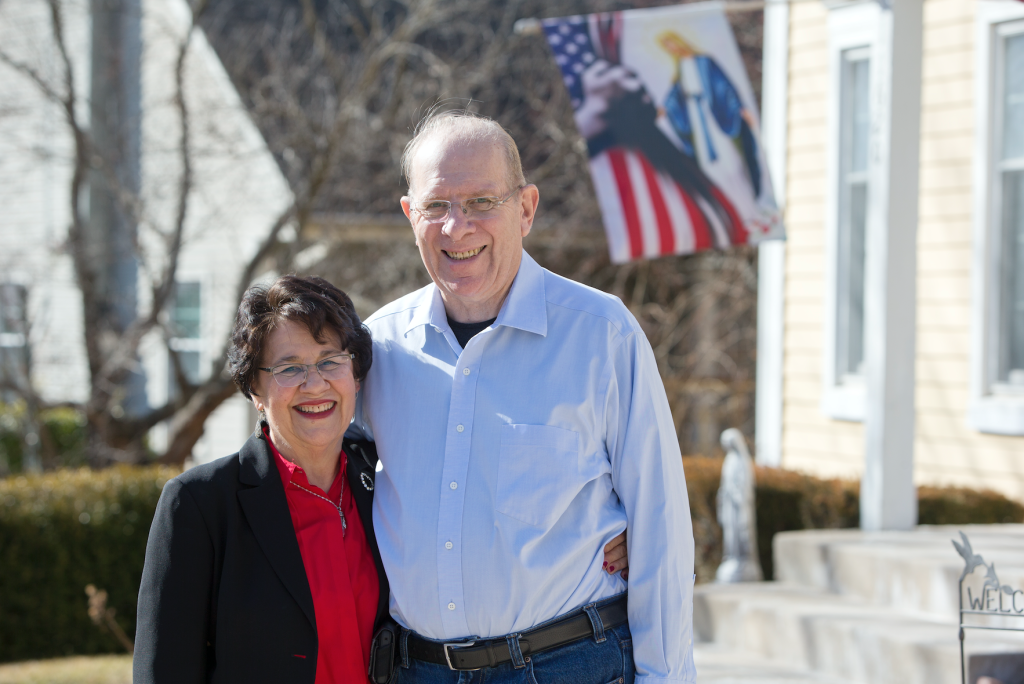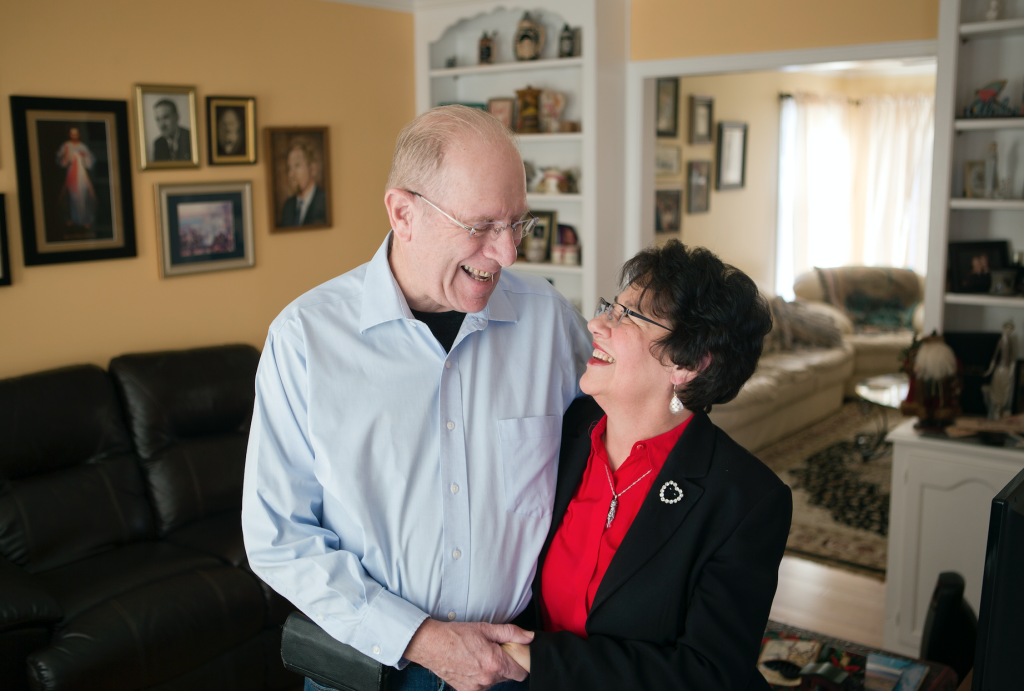
Married couples in the church are called to invest in other couples.
This week, Dutch tenBroek takes Leaven readers inside a ministry that he shares with his wife Kathy. They are marriage prep mentors.
Q. What is your name and title and where do you minister?
A. My name is Dutch tenBroek and I am Kathy’s husband — for the last 55-plus years. I minister all over the world. I was a command sergeant major with the U.S. Army for 30 years before retiring. In 2020, I retired as a registered principle for an independent broker dealer after 28 years.
Q. Please describe what you do.
A. I help couples preparing for the sacrament of matrimony to understand how to live their sacrament in the church. The couples learn specific skills that enable them to grow more in love every day, to navigate the challenging times with love and forgiveness, and to bring Christ’s love to life in their parishes. Couples learn that marriage is work and that the rewards are more than worth the effort.

Q. How would you describe how that fits into the larger mission of the Catholic Church?
A. The quality of love and warmth of a parish is, to some extent, determined by the living out of the sacrament of matrimony. A couple’s love is personal, but not private. A couple is called to be the living sign of the love of the Trinity to those around them. By living their sacrament openly, Christ’s love becomes visible to those around them.
A parish full of loving couples is a very inviting place. The visible sign of Christ’s love is very attractive. That is what keeps people, especially the young, in church. The mission of our church is to bring the love of Christ to our world. A couple openly in love with each other, their family and their church is the building block for that mission.
Q. Is this what you set out to do in life? If not, then, what road led you to this place?
A. Not even close. In January of 1978, Kathy and I attended a Worldwide Marriage Encounter while stationed in Germany. In addition to encountering my wife, I had an encounter with God. I realized that I was putting my priorities in the wrong place. My career in the Army was going to end, my marriage would not, and that is where I needed to put my efforts.
Once I started focusing on being the husband God wanted me to be, my career took off faster than it did when I was focused on it. I realized I had a responsibility to Kathy and our church to be the head of our family.
In the end, my vocation — my life’s work given to me by God — is where I will be judged at the end of my life. Living what God wants me to do is much more important and rewarding than what society asks. The key word here is “work.” Marriage takes effort, and like most of life, you get out of it what you put in.
Q. Did you collect some skills from other jobs along the way that have proved surprisingly helpful?
A. Not so much from other jobs as other relationships. A priest friend pointed out that we are always comparing how we are doing with those around us. I am not doing as well as they are, or we are doing better than so-and-so. We make those judgments unconsciously. The point is to find couples who are living successful relationships and emulate them.
Q. What would the average Catholic be most surprised to learn about your job?
A. You can be more in love today than the day you were married. Marriage is our vocation, our life’s work. Our church tells us we are a sign of Christ’s love. When we work to live in love, we receive so many blessings. Your relationship becomes joy filled.
Like everything we do for the church, we always get more than we give. We have developed lifelong friendships with some of our couples. We have been challenged to grow in our faith on a very personal level.
Q. Who does your ministry primarily serve?
A. Our ministry primarily serves all couples who are considering marriage in the church.

Q. What do you wish everybody knew about your ministry?
A. While our faith is personal, it is not private. We are called as a community of believers every Sunday to celebrate together. As married couples in the church, we have an obligation to invest time into the other marriages in our church. There are no special qualifications (there is some training). If you want a better relationship, invest in those around you.
Q. Why does the world need more of what you’re offering, especially right now?
A. Marriage is in crisis right now. Our sacrament is the primary target of the devil. Christ’s love visibly offered through loving couples/families is the basic building block of faith in our parish and the antidote to the devil.
Our faith needs strong healthy marriages. If you have done nothing for your relationship in the past, do something. Our archdiocese offers several programs to help you build your relationship into what God desires for you. You should be working as hard on your marriage as you are on your career. After all, your career will end at some point. Hopefully, your marriage will not. So attend a Worldwide Marriage Encounter or EverMore in Love, or find a retreat for the two of you. Our church needs you to be deeply in love. How can that be a bad thing?
Q. What have you learned about people in this job?
A. For the most part, people want to succeed. If you give them the right tools and understanding of what the mission is, they will do their best to make it happen.
Q. What have you learned about yourself?
A. I am constantly challenged by the sacraments around me to be a better husband. There is always room for improvement. Fortunately, Kathy is quick with forgiveness, as is Christ, which helps me get to confession regularly.
Q. How has it changed the way you view your identity as a Catholic?
A. Catholic is my family name. Like all families, there are some relatives I like more than others, but I love them all. Those are my relatives going to Communion. Like all families, I am called to be involved with them, to care for them and to pray for them. We cannot live in isolation and live our faith. The quality of our sacrament is highly dependent on all the other sacraments around us being lived out to the fullest. Christ asks that of us each and every day. How can we say no?






